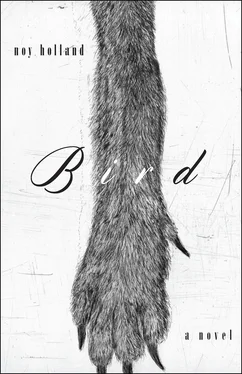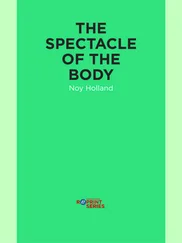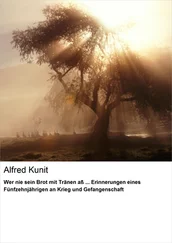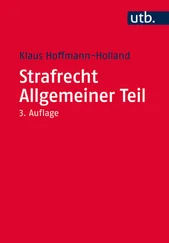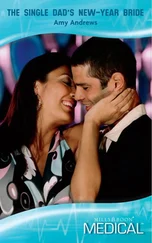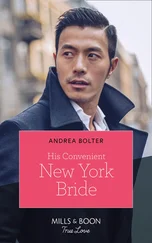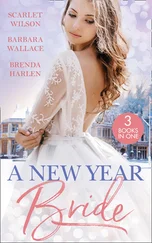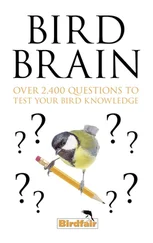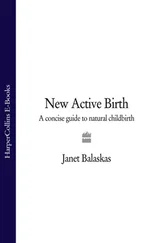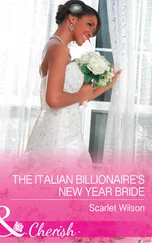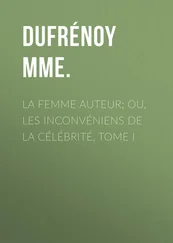She was crying again, quietly, her hair falling over her eyes. Mickey moved off; he had her hand in his hand. The girl was hidden away in the grasses, her brother above her turning, still hanging from the rope by his hair. A tableau.
The father had nearly reached them.
He was jogging now with his pitchfork, shouting, “Who the hell are you?”
They drove on.Interstates and dirt roads. Hay packed away in great round bales, wind rolling over the prairie. They saw the salt pillars in Kansas, strange and unadorned. Rock fence posts. Double rainbow. They had a route they were told to follow that they followed not at all. They saw Crazy Horse rising out of the plains, out of the town of Custer, named after Custer; they saw the fort where Crazy Horse died, a prisoner held by his people, by Little Big Man, Young Man Afraid, while Private Gentles ran the bayonet through him.
“Cheer up, baby sweet. I wish you could,” Mickey said.
Bird didn’t want to — not yet. But soon. The country was working on her, the low rose gone to russet, the high bright move-along clouds. She was hungry again and gorged herself on chicken fried steak and Skittles, on vermilion faces of canyons, cliffs you could dig with a spoon. Bandolier, Mesa Verde, Chaco canyon — this was her girlhood, her blood’s country, the great dry American open.
“Open up,” Mickey said, and she did.
Cantaloupe in the bathtub, love, the curtains drawn, the heat blasting.
“Feed me to the furnace when I die,” Bird said, “and leave a little bit of me here—” in the bed, she meant, of the Super 8, exit 42 off the interstate, where the mirrors come down off the wall.
They were dayslate, dollars short, by the time they got to Cheyenne, but the Drive Away clerk didn’t care.
“You look happy,” she said. “Where you headed? I bet you don’t even know.”
Which was true: they didn’t. The clerk was headed down to Denver. She would take them south if they wanted.
“It doesn’t blow as hard in Denver,” she said. “I had a friend had a car door blow shut on her here and it broke her leg in two places.”
“How you tell a tourist from a local?” she said. “A tourist chases his hat.”
“I don’t get it,” Mickey said.
“In the wind, babe. When the wind picks his hat off his head?”
She sort of socked him in the arm, flirting.
“What’s the difference between a rancher and a 747? When it sets down in Honolulu, a 747 quits whining.”
“That’s a good one,” Mickey said, and socked her right back.
She told jokes all the way to Denver, not a one of them better than these.
“Who’s the bestbaby on the planet?” Bird asks. “Think: princess with 49 dresses. Little Miss sparkly shoes.”
The baby is like a doll Bird dresses who cannot quite sit up. She would do better, like as not, in the sea. Little guppy.
“Silly, guppies don’t live in the sea,” Bird says.
Bird is cleaning, sort of. She sweeps. She spits on a stain on the kitchen floor and rubs the spot clean with her sock feet.
What in the world, Bird thinks, are your sock feet? Hers are filthy; they’ll do.
Bird slides her feet into her husband’s boots and sets off down the road with the baby breathing sweetly against her chest. The geese are moving.
So soon? Can’t you stay?
What if she had stayed in the west, Bird thinks, with Mickey, out in the dry wide open?
Yep. And what if the moon were cheese?
And what if they made you president, Bird, or better yet, the Queen?
She’d raze the suburbs, give it all back to the animals, open the gates of the zoo.
Was it true there was a zoo of good Christians to prove God’s impeccable design? Better throw the bolt on that one. Those people need to die. She would line them all up — the CEOs, the greedy guts, the poachers, the cheats. Let the hyenas have at them.
Now there’s a sport for your networks, yup. Let’s get rid of the buttons and levers, return to hand-to-hand. It’s just you, High Sir, and the hyena. You get a stick. The hyena gets a loop of your colon to unspool you by. Now run.
Nice, Bird thinks, and you’re a mother? You keep the tally for the PTP?
The neighbor is still burning plastics: throw him in. Quick. Let his ticker quit.
I’m sorry, is what she means to say. Sorry, sweetheart, about the elephants. About the sea turtles with their heads lopped off, and the friendly, machine-gunned whales. About the owls, my love, and the antelope. About the drowning bears, the baby seals clubbed, the cormorants grounded by oil. About that wall we threw up to keep the Mexicans out across a migratory pathway millions of years old. For the sharks, finned and starving. Sorry. The food riots. The refugees. Dioxin in Mama’s breast milk, sorry. Mercury in tuna; chickens with their beaks cut off, fed their own shit from a tube. It’s cheap. It’s worth it.
Sorry, love.
Welcome to the world.
“What’s left of the world,” Bird says again, second time today.
They walk theloop: neighbor, neighbor, sugar house, pond. Pretty little pond you can’t swim in. You’ll come out with an extra nose.
The baby’s happy. How did I get such a happy baby? Bird wonders.
Blue blue day, bit of sunshine. The legendary leaves.
They are watching a movie of us and we are watching a movie of them and everybody’s happy, Bird thinks.
White whale. The same eye sweeping past, not so different. Small. The dark clear curious orb.
Now there’s a word, orb, you don’t hear every day.
Dropped your orball. I kin get it.
The town cat, killer cat, rubs against Bird’s leg.
“You want my happy baby, don’t you? You can’t have her, not in a million years.”
In a million years, Bird thinks, what will the planet look like? What, in another ten?
She walks on, feeling lighter, sobering up. She shakes out her shirt in a sunshiny field and they lie on it, Bird on her back and the baby on Bird’s chest, one heart bumping into the other. She’d like to sleep here, wake in falling dew. The baby holds up her head to look at Bird, to gnaw on Bird’s chin, but now she’s tired — spent beyond wanting and soft all at once. Everything in that baby gives way.
It is the dearest crushing feeling.
Bird makes a roll bar of her elbows and rolls with the baby against her, gently down the hill.
“Don’t be afraid,” she says, “like your mama. Love and be done with it. Let go. Hold on,” she says, “may you always.”
The baby is lying on her back, batting at Bird’s face, the silver heads of the grasses nodding all around.
“I’ll eat you up,” Bird says, “You’re too pretty. You mustn’t be ashamed to be pretty. Don’t be proud. People will envy you; you have to let them. People will hate you — you let them. Don’t let them take anything from you, my girl. They’ll take everything. You have to give yourself away.”
Bird kisses the baby’s pinkening cheeks, the knob of her spitty chin.
“Be good to yourself, my little lollipop. Never love a boy like Mickey. I don’t mean that.”
She presses her mouth against the baby’s creamy belly.
“What I mean, lollipop, is love him. Love him hard and be done.”
Bird picks the baby up, puts her shirt back on. The ferns are withering, sweetening the air.
“Love me,” Bird says, “you have to promise. Promise me you will write to me when you are all gone away and grown.”
They go inside,the kitchen dim, hard at first to see. First thing Bird sees is the telephone and she picks it up to call Mickey, hangs it up again. A grown woman. Christ above. She’s got a baby. She shakes. She is shaking that baby too.
Читать дальше
